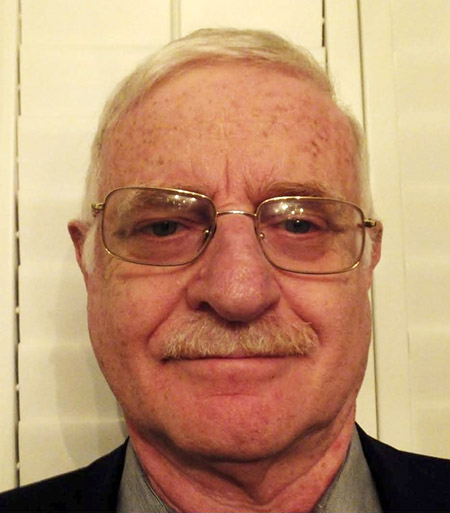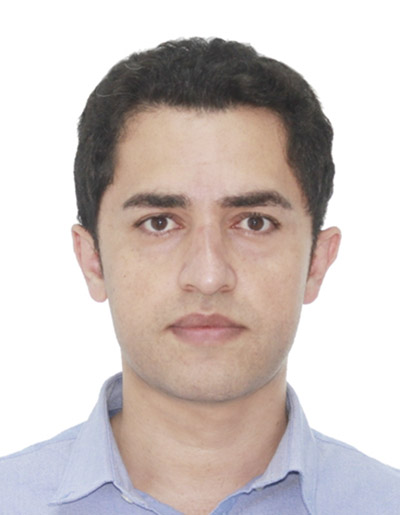
Dr. David Nussbaum

Dr. Yusef Karimi
Dr. David Nussbaum and Dr. Yusef Karimi, Extremism and Terrorism
Extremism and Terrorism are not limited to a geographic location or to a time period. We see the results all over the world, here in North America, in the Middle East, and most recently in Europe. Dr. David Nussbaum and Dr. Yusef Karimi discuss psychology’s role in understanding, and possibly preventing, violent extremism.
“I had a classmate in high school who was extremely intelligent. He wasn’t religious at that time – most Kurdish people are secular; they don’t believe much in the way of fundamental or extremist religion. When I was a Master’s student at university, I heard that he had joined Al Qaeda in Afghanistan. At the time, I was wondering why some people wanted to join Al Qaeda and other extremist groups. Especially when most of my friends and I were always against those groups in my province. About a year later, I heard the news that he had been killed in Afghanistan along with Abdullah Masood. I was shocked – why? Why did he join? What was the psychological root of this process?”
Dr. Yusef Karimi is Kurdish, and came here to Canada from Iran two years ago. He finished his Ph.D. in counselling psychology in Iran, where he was particularly interested in understanding what make people join groups like Al Qaeda and ISIS. He went to villages at the border of Iran and Iraq for Friday prayers and then through the rest of the weekend, interviewing members of extremist groups over the course of about 4-5 years.
“I communicated with them, gathered lots of information about them, and interviewed 16 Salafi Jihadists. Unfortunately, after these interviews, three of them joined ISIS in Syria and were killed there. As a human being and as a psychologist, I had got to know these people for a while. I became depressed after they were killed. My main idea at that time was to find a way to convince people not to join these extremist groups in the first place. To this day, I’ve been still trying to find an answer for this question.”
The answer, says Dr. Karimi, is most definitely not what the West has been doing in terms of counter-terrorism, invading Afghanistan and Iraq with the goal of ‘nation-building’, drone strikes in Syria and Somalia, and all the other interventions that start with military aggression and occupation. He points to the recent events in Afghanistan, the resurgence of the Taliban after the US withdrawal, as a good example of this flawed strategy.
“I think what has been done in the Middle East in terms of understanding and fighting extremism is doomed to failure because of the use of ineffective methods. The attempts for understanding and dissolving such extremist groups require phenomenological approaches that get to the roots of the problem. Politicians and decision-makers usually prefer to define and evaluate current extremist groups in the Middle East in terms of their existing organizational capacity rather than the actual threats posed by that group.
As a psychologist, as someone who has been in those countries in the Middle East and has been a part of that culture, what we have observed in recent months in Afghanistan is the failure of the ‘nation building’ efforts of the past 20 years. We can consider lots of factors that have led to this failure, but in my opinion, there is one factor we should consider most seriously. That is, a lack of knowledge of the psychological characteristics of the Afghan people. Psychology, in this circumstance, can provide us with a great amount of knowledge of the characteristics of an individual in a community. That can go a long way toward peace making and conflict resolution.”
The Taliban, now back in charge in Afghanistan, made headlines in recent weeks when they joined the rest of the world in calling for a peaceful resolution to the Russian invasion of Ukraine. This, in itself, caused a lot of reaction around the world ‘when the Taliban calls for peace, you know this is a terrible thing…’ that lacks a lot of nuances and understanding of the region.
Back in 1989, the Afghan mujahideen defeated the Soviet Union, driving them out of Afghanistan after a long and costly war. They then managed to topple the communist-backed Afghan government in place at the time, but soon fractured and, following a second civil war in Afghanistan, ceded power to the Taliban. The splintered mujahideen went off in all directions, one of which was that of Osama Bin Laden, who had been the most well-known backer of the mujahideen.
The Soviet, and now Russian, aggression is nothing new. Prior to their abhorrent invasion of Ukraine recently, Putin’s Russian military and bot farms had been engaging in cyber terrorism across the world, which could have been a signal to the rest of the world that they were building up to something more traditionally violent.
Dr. David Nussbaum is the Chair of the Extremism and Terrorism Section of the CPA. Dr. Nussbaum has a PhD in biological psychology, but says he really learned clinical psychology by driving a cab a couple of nights a week for four years while finishing his PhD. Following his PhD, he did a postdoc in neuropsychology, where he got interested in forensic psychology. He joined the Criminal Justice section of the CPA, and headed it for 7 years. There he met Dr. Wagdy Loza, who was the chief psychologist at the Kingston Penitentiary at the time. Dr. Loza started the Extermism & Terrorism Section, and when he did Dr. Nussbaum was one of the signatories who got it initial status. This gave him an orientation in middle eastern terrorism, but he has been talking about the link between communism, extremism, and terrorism for many years.
“People are lured by this promise of a Communist utopia, the paradise of the working man. Except once they’re five years into a Marxist economy, they’re lucky to be eating. They might then say they’re experiencing buyer remorse and they want to get rid of this government. That’s when the totalitarian, draconian nature of the statist comes out. You have Russian gulags, and so on.”
The totalitarian, draconian nature of Putin the statist is currently on full display, as the world responds to the invasion of Ukraine with almost universal condemnation. It is, however, interesting to see the difference between the world’s reaction to this invasion when contrasted to the US invasion of Afghanistan, or the Saudi Arabian offensive against Yemen. War is war, whether it takes place in the Middle East or in Europe, and Dr. Nussbaum is clear that there is no one location where terrorism, or the ideologies that produce it, thrives.
“Terrorism is not limited to one geographic location, one specific ideology, there are terrorists around the world and there have been for millennia. Now, in the last 25-30 years it has become a major issue because of various ideologies that seek to take over the Globe (or huge parts of it). One of the things they do to influence governments and citizens is the use of terrorism to instill fear, so that people will comply with their dictates. It’s always done for a political end.”
Dr. Karimi points out that over the course of history, we have often had to recalibrate what we thought we knew, thanks to extremist violence that we had not previously considered.
“We had some experience with fascism and racism in Germany before World War II. In the 20th century Hannah Arendt said with rising totalitarianism we were faced with a new phenomenon, and a new reality. The political thought had never faced this before, so she said we had to establish a new science of politics to explain and interpret totalitarianism. Like what Alexis de Tocqueville said in the 18th century after the French Revolution. Today, psychology – and political psychology in particular – is faced with yet another new phenomenon, and a new reality. It raises many questions, like how can we understand the individual in a society like Afghanistan, Syria, or Iraq, where social order is established mostly on a tribe structure? Trying to ‘build a new nation’ in Afghanistan was not at all in line with that culture.”
After 9/11, extremism started to become a serious problem in North America, with far-right groups springing up with an anti-Islamist foundation. Western efforts to suppress those groups and avoid giving them a platform worked only so long, and in the last few years that extremism has reached new heights as it has grown in power. We have seen tendrils of those extremists reaching into events like Charlottesville, the January 6th attack on the US Capitol, and more recently the ‘freedom convoy’ that occupied downtown Ottawa for three weeks this year.
For Dr. Karimi, the solution to this problem is similar to the solution to Middle Eastern terrorism – get to people before they become extremists. It will be a long process, and can’t happen overnight, but understanding the culture and embracing it will sow the seeds for a de-escalation of extremism in the future. He says of Canada, his home for the last year,
“Lots of immigrants come to Canada, which is good because they bring a lot of external knowledge with them. But we should have a plan to integrate these people and their culture. It’s all well and good to take in a lot of immigrants, and refugees, and so on – but there has to be a plan to integrate them into the Canadian society. To have them live together with other Canadians in an integrated way so they are not seen as ‘the other’ the way so many currently do. It’s good that we have a multicultural country, but we could be doing so much more to use this multiculturalism to improve Canada.”
